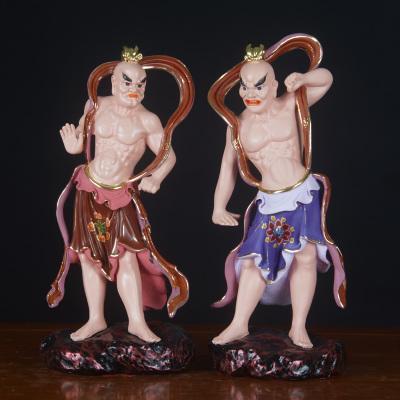古代对男子有哪些称呼(知道男子在古代都有哪些称呼吗)
本期编辑/开鸿顺
KaiHongShun Studio
————————
1、良人
古时夫妻互称为良人,后多用于妻子称丈夫。这称呼足见那时的男人在女人心目中是何等高大和备受尊重。
In ancient times, husband and wife were called each other as lovers, and later they were mostly used for wives to call husbands. This title shows how tall and respected men were in women's minds at that time.

2、郎、郎君
郎,根据《说文解字》,在“良”字音义上加以区别;在“良”右边加“阝”,变成“郎”;在“良”左边加“女”,衍成“娘”。“郎”就代表丈夫了李白有“郎骑竹马来,绕床弄青梅“ ,义山诗有“刘郎已恨蓬山远,又隔蓬山一万丛”,花间词中有“问郎花好侬颜好”。“郎”多亲切的称呼!但单音节词似乎不太口语化,在日常生活中女人们通常在前头或尾后加一个字变双音词,即“郎”字后面加一个“君”字;妻子称丈夫为:“郎君”,是对丈夫的雅称。
Lang, according to Shuowen Jiezi, distinguishes the sound and meaning of the word "good"; Add "half" to the right of "good" to become "Lang"; Add "female" to the left of "good", and become "mother". "Lang" means her husband, Li Bai, "Lang rides a bamboo horse to get green plums around the bed", Yishan poem has "Liu Lang has hated Pengshan far away.
3、官人、老爷
官人,宋代,是南北文化交流的时代。在夫妻间的称呼上,也是称谓较多的朝代。宫延中,出现了 “官家”一词;平民百姓中,有了“官人”这一称谓。有的妻子称自己的丈夫为“官人”。
The Song Dynasty was an era of cultural exchanges between the North and the South. In terms of address between husband and wife, it is also a dynasty with more address. In Gong Yanzhong, the word "official" appeared; Among the common people, there is the title of "official". Some wives call their husbands "officials".

至今,民间仍对新婚夫妻戏称为“新郎官”、“新娘子”。最知名的代表人物就是:西门大官人。从这个称呼也可看出随着宋代理学的兴盛,男人的家庭地位也上了一个新台阶。老爷,仅限于官宦人家对老公的称呼。其在家中的尊贵地位不言而喻。
Up to now, newlyweds are still jokingly called "bridegroom" and "bride". The most famous representative is Ximen dignitary. It can also be seen from this title that with the prosperity of the Song Dynasty's school of surrogates, men's family status has also reached a new level. Master, it is only the address of the official family to his husband.
4、萧郎
“萧郎”既是男子的通称,又是女子对自己情人的爱称。它原来本指姓萧的男子。《梁书?武帝纪上》用“萧郎”指代梁武帝萧衍。
"Xiao Lang" is not only a general name for men, but also a woman's favorite name for her lover. It originally meant a man surnamed Xiao. "Xiao Lang" is used to refer to Xiao Yan, Emperor Wu of the Liang Dynasty.

5、先生
先生是称呼,字面的意思表示:出生比自己早,年龄比自己大的人;另有先接触陌生的事物的意思,引申为先接触陌生事物的人。所以古代称别人先生有向别人学习的意思,达者为先,师者之意。后延伸为对人的一种尊称。在现代语境下,先生是对男士的称呼。
Mr. A is a name, which literally means: someone who was born earlier and older than himself; There is also the meaning of first contacting strange things, which is extended to the person who first contacts strange things. Therefore, in ancient times, it is said that others have the meaning of learning from others.

6、束发
清朝以前汉族男孩15岁时束发为髻,成童;20岁时行冠礼,成年。因此用束发指代成童的年龄,即15至20岁。束发又分全束和半束半披。
Before the Qing Dynasty, boys of Han nationality wore their hair in buns when they were 15 years old, and became children; When you are 20 years old, you should be crowned. Therefore, the age of adult children is 15 to 20 years old. The hair is also divided into full bunches and half bunches.
,免责声明:本文仅代表文章作者的个人观点,与本站无关。其原创性、真实性以及文中陈述文字和内容未经本站证实,对本文以及其中全部或者部分内容文字的真实性、完整性和原创性本站不作任何保证或承诺,请读者仅作参考,并自行核实相关内容。文章投诉邮箱:anhduc.ph@yahoo.com






